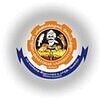MBA HR Syllabus and Subjects 2026

MBA HR syllabus is divided into four semesters and spans a period of two years. MBA HR syllabus offers a range of subjects covering areas such as management, economics, organisational behaviour, strategies of recruitment, conflict resolution and more. The MBA HR syllabus features core and elective courses along with practical courses for a well rounded learning experience.
Subjects in the MBA HR syllabus 1st year covers areas such as managerial economics, organisational development, change management and human resource management. The 2nd year of the MBA HR subjects include HR development, HR accounting, information systems, global HR practices, and more. The MBA HR syllabus PDF is accessible on the official website of the colleges offering the course.
MBA in Human Resource Management job scope and opportunities are expansive. MBA HR graduates are equipped for diverse roles, including HR Manager, Recruitment Specialist, Training and Development Manager, Employee Relations Consultant, and more.
Table of Content
- MBA In HR Syllabus
- MBA in HR First Year Syllabus
- MBA in HR Practical Subjects
- MBA in HR Second Year Syllabus
- MBA in HR Practical Subjects
- MBA in HR Subjects
- MBA in HR Core Subjects
- MBA in HR Elective Subjects
- MBA in HR Semester-Wise Subjects
MBA In HR Syllabus
MBA in HR syllabus 2024 encompasses a spectrum of core and elective subjects, wherein core courses establish a robust cornerstone in fundamental HR principles, while elective offerings empower students to cultivate specialized proficiency within the HR domain.
| MBA in HR Syllabus | Details |
| Principles of Management | Management functions, roles, and processes |
| Organizational Behavior | Study of individual and group behavior within organizations |
| Human Resource Management | Overview of HR functions including recruitment, selection, training, and employee development. |
| Managerial Economics | Application of economic theories to business decision-making. |
| Financial Management | Basics of financial planning, analysis, and control. |
| Marketing Management | Core concepts and strategies in marketing |
| Operations Management | Principles of managing production and operations in business. |
| Strategic Management | Formulation and implementation of business strategies. |
| Performance Management | Techniques for evaluating and improving employee performance. |
| Compensation and Reward Management | Designing and managing compensation structures and reward systems. |
| Training and Development | Methods and strategies for employee training and professional development. |
| Labor Laws and Industrial Relations | Understanding labor laws and managing industrial relations. |
| Organizational Development and Change | Strategies for managing organizational change and development |
| Business Communication | Effective communication skills in a business context. |
| Management Information Systems | Role of information systems in business operations. |
| Business Research Methods | Research methodologies used in business studies. |
| Legal Environment of Business | Laws and regulations affecting business operations. |
| Cost and Management Accounting | Principles of cost control, budgeting, and managerial accounting. |
Practical Subjects in MBA in HR
- Summer Internship
- Capstone Project or Dissertation
- Communication and Behavioral Skills Workshops
- HR Simulation and Case Studies
MBA in HR First Year Syllabus
- Managerial Concepts
- Organizational Behavior
- Human Resource Management
- Organizational Development
- Management Accounting
- Management Training and Development
MBA in HR Practical Subjects
- Communication Lab
- Excel and Data Analysis Lab
- Behavioural Skills Workshop
- Group Projects and Presentations
MBA in HR Second Year Syllabus
- Human Resource Development
- Industrial Relations
- Labor welfare
- Total Quality Management
- Entrepreneurship and Management in Small Business
- Business Policy and Strategic Management
MBA in HR Practical Subjects
- HR Simulation Lab
- Compensation and Benefits Lab
- Labor Law Compliance Workshop
- Performance Management System Design
- Training and Development Workshop
- HR Analytics Lab
- Capstone Project or Dissertation
- Industry Visits and HR Conferences
Also Read:
MBA in HR Subjects
MBA Human Resource Management subjects cover critical HR administration and operations concepts, such as HRIS, HR Accounting, Benefits Management, Performance Management, etc.
| MBA in HR Subjects | Details |
| Human Resource Management | Human Resources Management, Recruitment and Selection, Manpower Planning, Training and Development Methods |
| Human Resource Development | Human Resource Development, Framework of Human Resource Development, Evaluating HRD programs, Management Development |
| Performance Management | Quality Performance Management, Work Place and Its Improvement Through 5S, Organizational Structure and Employee Motivation and Morale |
| Industrial Relations Management | Concepts and Determinants of Industrial Relations, Trade Unions, Employee Counseling, Discipline and Grievance Redressal Machinery |
| Employee Legislation | Introduction to the Historical Dimensions of Labor & Employee Legislation in India, Factories Act 1948, Maternity Act 1961, Payment of Wages Act 1936 |
MBA in HR Core Subjects
The following is the MBA HR subjects list containing core topics:
- Management Concepts & Organisational Behaviour
- Managerial Economics
- Accounting for Managers
- Financial Management
- Marketing Management
- Human Resource Development
- Operations Research For Managers
- Employee Legislation
- Compensation Management
MBA in HR Elective Subjects
Students can choose elective subjects according to their area of interest. Some of the elective subjects in MBA HR are given below:
- HR Accounting and Contemporary Corporate Behaviour
- International HRM
- Negotiation Management
- Strategic & Sectoral HRM
- Business Analytics
- Contemporary HR Issues
- Social Media Management
MBA in HR Semester-Wise Subjects
The syllabus for the MBA in HR for various semesters is given below.
MBA in HR Semester-1 Subjects
| Subject | Topics Covered |
| Organizational Behavior | Introduction to Organizational Behavior |
| Personality and Individual Differences | |
| Motivation Theories and Practices | |
| Group Dynamics and Teamwork | |
| Leadership Styles and Theories | |
| Organizational Culture and Climate | |
| Conflict Management and Resolution | |
| Organizational Change and Development | |
| Managerial Economics | Basic Economic Concepts |
| Demand and Supply Analysis | |
| Production and Cost Analysis | |
| Market Structures: Perfect and Imperfect Competition | |
| Pricing Strategies and Practices | |
| National Income and Macroeconomic Indicators | |
| Business Cycles and Economic Forecasting | |
| Financial Accounting | Introduction to Financial Accounting |
| Accounting Principles and Concepts | |
| Preparation of Financial Statements (Balance Sheet, Income Statement, Cash Flow Statement) | |
| Depreciation Accounting and Inventory Valuation | |
| Accounting for Liabilities and Equity | |
| Financial Statement Analysis and Interpretation | |
| Introduction to International Financial Reporting Standards (IFRS) | |
| Business Communication | Basics of Business Communication |
| Verbal and NonVerbal Communication | |
| Business Writing: Emails, Reports, and Memos | |
| Presentation Skills | |
| Interpersonal Communication | |
| CrossCultural Communication | |
| Public Speaking and Persuasion | |
| Negotiation and Conflict Resolution | |
| Human Resource Management | Introduction to Human Resource Management |
| HR Roles and Responsibilities | |
| Job Analysis and Job Design | |
| Employee Engagement and Retention | |
| HR Policies and Procedures | |
| Workforce Diversity | |
| HR Metrics and Analytics Overview |
MBA in HR Semester-2 Subjects
| Subject | Topics Covered |
| Business Environment and Ethics | Introduction to Business Environment |
| Economic, Social, and Political Environment | |
| Corporate Governance and Social Responsibility | |
| Ethical DecisionMaking in Business | |
| Environmental Sustainability and Business | |
| Regulatory Environment for Business | |
| Globalization and Business | |
| Human Resource Planning | Introduction to HR Planning |
| Workforce Planning Techniques | |
| Forecasting HR Requirements | |
| Succession Planning | |
| Managing Workforce Diversity | |
| Strategic HR Planning | |
| Recruitment and Selection | Recruitment Strategies and Methods |
| Selection Process and Techniques | |
| Job Interviews and Assessment Centers | |
| Employee Testing and Background Checks | |
| Onboarding and Induction | |
| Legal Aspects of Recruitment | |
| Training and Development | Introduction to Training and Development |
| Training Needs Analysis | |
| Designing Training Programs | |
| Training Methods and Techniques | |
| Evaluation of Training Programs | |
| Management Development Programs | |
| Elearning and Technology in Training | |
| Industrial Relations | Introduction to Industrial Relations |
| Trade Unions and Collective Bargaining | |
| Conflict Resolution and Grievance Handling | |
| Labor Legislation and Compliance | |
| Employee Welfare and Social Security | |
| Industrial Disputes and Settlements | |
| Role of Government in Industrial Relations |
MBA in HR Semester-3 Subjects
| Subject | Topics Covered |
| Performance Management | Introduction to Performance Management |
| Performance Appraisal Systems | |
| Goal Setting and Performance Planning | |
| 360 Degree Feedback Systems | |
| Performance Counseling and Feedback | |
| Managing Poor Performance | |
| Linking Performance to Rewards | |
| Compensation Management | Introduction to Compensation Management |
| Job Evaluation and Pay Structures | |
| Compensation Strategy and Policy | |
| Incentive and Benefit Plans | |
| Executive Compensation | |
| Compensation Legislation | |
| Compensation Benchmarking and Surveys | |
| Talent Management | Introduction to Talent Management |
| Talent Acquisition and Retention | |
| Succession Planning and Leadership Development | |
| Career Planning and Development | |
| Employee Engagement Strategies | |
| Talent Management Analytics | |
| HR Analytics | Introduction to HR Analytics |
| Data-Driven decision-making in HR | |
| HR Metrics and Key Performance Indicators (KPIs) | |
| Predictive Analytics in HR | |
| Tools and Techniques for HR Analytics | |
| Visualization and Interpretation of HR Data | |
| Labor Laws | Overview of Labor Laws |
| Industrial Disputes Act | |
| Factories Act | |
| Minimum Wages Act | |
| Employees’ Provident Fund and Miscellaneous Provisions Act | |
| Contract Labor (Regulation and Abolition) Act | |
| Compliance and Legal Obligations |
MBA in HR Semester-4 Subjects
| Subject | Topics Covered |
| Strategic HR Management | Introduction to Strategic HR Management |
| Aligning HR with Business Strategy | |
| Strategic Workforce Planning | |
| HR as a Business Partner | |
| HR Scorecard and Metrics | |
| Global HR Strategies | |
| Change Management | Introduction to Change Management |
| Models and Theories of Change | |
| Planning and Implementing Change | |
| Overcoming Resistance to Change | |
| Change Communication Strategies | |
| Leading Organizational Change | |
| Leadership Development | Introduction to Leadership Development |
| Leadership Theories and Styles | |
| Developing Leadership Skills | |
| Leadership in Different Organizational Contexts | |
| Coaching and Mentoring for Leadership Development | |
| Leadership Assessment and Feedback | |
| Diversity and Inclusion | Introduction to Diversity and Inclusion |
| Managing Workplace Diversity | |
| Creating Inclusive Work Environments | |
| CrossCultural Management | |
| Gender, Race, and Ethnicity in the Workplace | |
| Legal and Ethical Considerations in Diversity Management | |
| Project Work/Internship | Real-World Application of HR Concepts |
| Research Methodologies and Data Collection | |
| Analysis and Interpretation of Findings | |
| Writing and Presenting a Dissertation/Report | |
| Practical Experience in a Business Setting |
Top MBA in HR Colleges
Top Management Entrance Exams
MBA in HR Fee Structure
FAQs on MBA in HR Syllabus and Subjects
Q: Which topics are included in MBA HR Syllabus?
Q: What are the key subjects taught in MBA HR Management?
Q: What are the important topic in MBA in HR?
Q: What are some of the popular projects in MBA HR?
Q: Is MBA in HR worth doing?
























